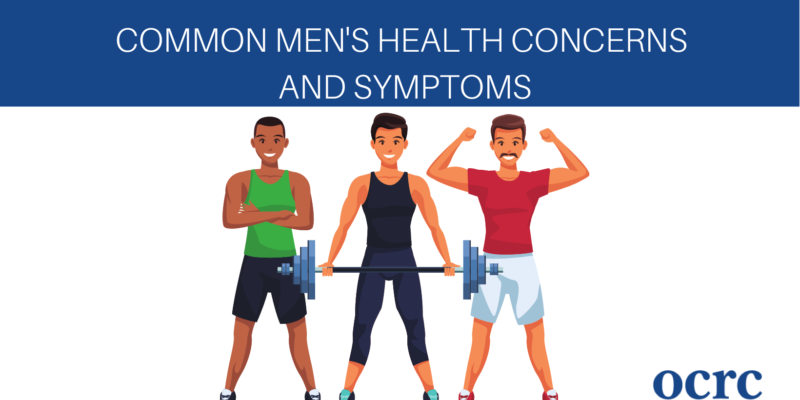
It’s a simple fact: women are healthier than men. The reasoning behind this fact, however, is not so simple.
Not only do men die at higher rates from leading causes of death, but they also tend to die younger. On average, women live five years longer than their male counterparts. While biology can play a role in this phenomenon, it’s largely due to the fact that men often take a much different approach to their health compared to women… by not really approaching their health at all.
Common men’s health concerns aren’t a mystery. In fact, many of them are preventable; the biggest problems aren’t necessarily the diseases themselves, but rather a lack of health monitoring and early detection. Compared to women, men are much more likely to smoke and drink, engage in risky behavior, and go to the doctor less frequently, often putting symptoms on the backburner until a condition is serious.
Society’s model of masculinity—being tough and ignoring the pain—is, unfortunately, highly detrimental to men’s health.
The good news is that it’s never too late to take control of your health by gaining an understanding of common men’s health concerns and symptoms, along with helpful prevention tips.
For example:
While heart disease is the leading cause of death for men and women alike, nearly twice as many men die from heart-related conditions. This is largely due to the fact that compared to women, men’s arteries begin hardening earlier, making early and often doctor’s visits a good idea.
Symptoms of heart disease in men include:
Depression can often go undiagnosed in men for two primary reasons:
Symptoms of depression in men include:
Additionally, unaddressed mental health issues can lead to physical issues such as chronic headaches, digestive issues, or chest tightening.
Did you know that men are more likely to develop type 2 diabetes, even at a lower weight than women? This is largely due to the fact that adult men have more belly fat than women. In other words, that beer gut could be doing some serious damage.
Symptoms of diabetes in men include:
Diabetes also puts men at a greater risk of additional health issues such as heart disease, stroke, kidney failure, and erectile dysfunction.
It’s natural for men’s testosterone levels to drop as they get older, typically after age 30. While this decline is natural, it’s not always welcome, especially for those men whose testosterone levels decline at a more rapid rate.
Symptoms of low testosterone in men include:
If you suspect that your testosterone levels are low, a doctor will be able to provide an official diagnosis and treatment plan.
Men, don’t put your health on the backburner. Visit the doctor for regular checkups, whether you’re experiencing symptoms or not. If you do have symptoms, don’t wait to get them checked out, as early detection is key when it comes to the majority of health concerns.
Living a healthy, active lifestyle will also put you at a lower risk of developing certain health issues. Not sure where to start? Check out these 5 simple ways to improve your health: https://ocrc.net/5-simple-ways-to-improve-your-health/
